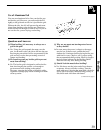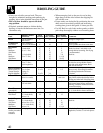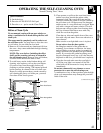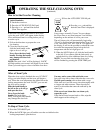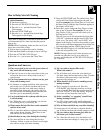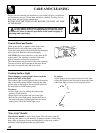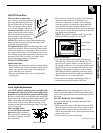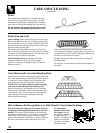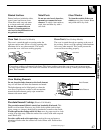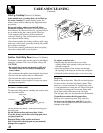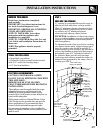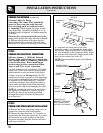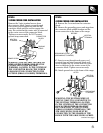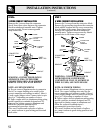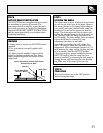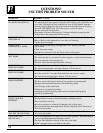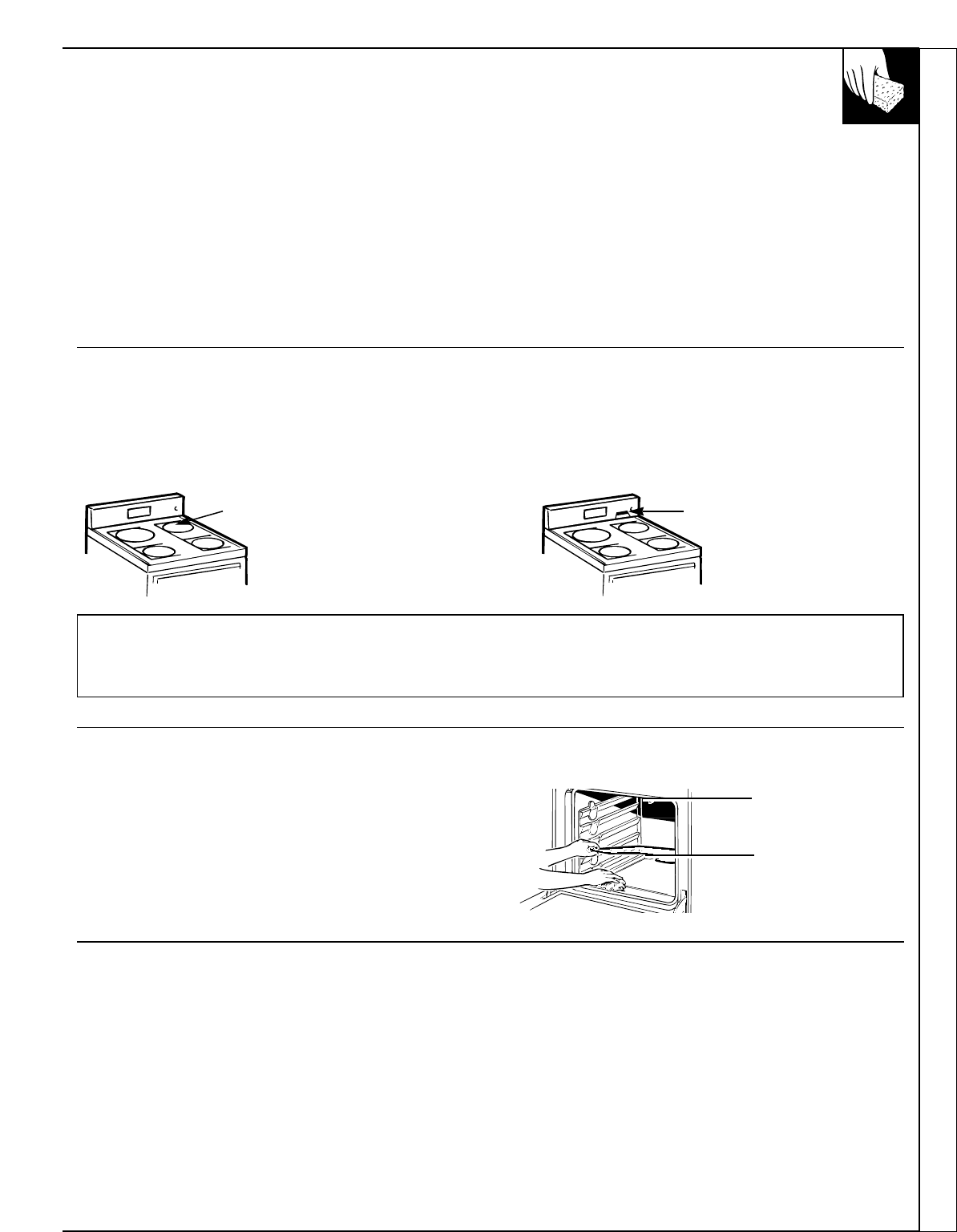
47
Care and Cleaning
The oven is vented through an opening under the
right rear surface unit. Never cover the opening with
aluminum foil or any other material. This would
prevent the oven vent from working properly.
The oven is vented through an opening at the rear of
the cooktop. Never cover the opening with aluminum
foil or any other material. This would prevent the
oven vent from working properly.
Oven Vent
Oven Vent
Oven Vent (
Electric Coil Models)
Oven Vent (
Glass Cooktop Models)
Painted Surfaces Metal Parts Glass Window
Painted surfaces include the sides,
control panel and drawer front.
Clean these with soap and water
or a vinegar and water solution.
Do not use commercial oven
cleaners, cleansing powders,
steel wool or harsh abrasives on
any painted surface.
Do not use steel wool, abrasives,
ammonia or commercial oven
cleaners. To safely clean surfaces;
wash, rinse and then dry with a
soft cloth.
To clean the outside of the oven
window, use a glass cleaner. Rinse
and polish with a dry cloth.
Porcelain Enamel Cooktop (
Electric Coil Models)
The porcelain enamel finish is sturdy but breakable if misused. This
finish is acid-resistant. However, any acidic foods spilled (such as fruit
juices, tomato or vinegar) should not be permitted to remain on the finish.
If acids spill on the cooktop while it is hot, use a dry paper towel or cloth
to wipe it up right away. When the surface has cooled, wash with soap and
water. Rinse well.
For other spills such as fat spatterings, wash with soap and water or
cleansing powders after the surface has cooled. Rinse well. Polish with a
dry cloth.
(continued next page)
Oven Heating Elements
Do not clean the bake element or the broil element.
Any soil will burn off when the elements are heated.
The bake element can be lifted gently to clean the
oven floor. If spillovers, residue or ash accumulate
around the bake element gently wipe around the
element with warm water.
Broil Element
Bake Element
Convection cooking cooks most foods faster. This faster cooking causes the oven vent to put out more steam
or water vapor than usual. The steam will condense on surfaces such as the cooktop, control panel and adjacent
pans. This is normal.



